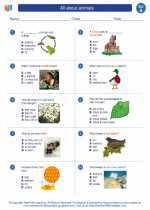Cellular Function Study Guide
Introduction to Cellular Function
Cellular function refers to the processes that occur within a cell, enabling it to carry out essential functions necessary for life. These functions include energy production, protein synthesis, waste removal, and cell division.
Energy Production
Cells produce energy through a process called cellular respiration. During cellular respiration, glucose is broken down to release energy in the form of ATP (adenosine triphosphate), which is used to power cellular activities.
Protein Synthesis
Protein synthesis is the process by which cells build proteins. It involves two main steps: transcription, where the DNA code is transcribed into RNA, and translation, where the RNA code is translated into a specific sequence of amino acids to form a protein.
Waste Removal
Cells generate waste products as a result of their metabolic activities. Waste removal is essential for maintaining cellular function and involves processes such as exocytosis, where waste materials are expelled from the cell, and lysosomal digestion, where cellular waste is broken down and recycled.
Cell Division
Cell division is the process by which cells replicate and divide to form new cells. It is essential for growth, repair, and reproduction. The two main types of cell division are mitosis, which produces two identical daughter cells, and meiosis, which produces reproductive cells with half the number of chromosomes.
Cellular Function Study Questions
- What is cellular respiration and how does it contribute to cellular function?
- Describe the process of protein synthesis in a cell.
- Why is waste removal important for maintaining cellular function?
- Explain the difference between mitosis and meiosis.
By understanding the processes of energy production, protein synthesis, waste removal, and cell division, we can gain insights into the fundamental functions that enable cells to sustain life and carry out their essential roles in living organisms.
.◂Science Worksheets and Study Guides First Grade. All about animals

 Worksheet/Answer key
Worksheet/Answer key
 Worksheet/Answer key
Worksheet/Answer key
 Worksheet/Answer key
Worksheet/Answer key
 Worksheet/Answer key
Worksheet/Answer key
 Vocabulary/Answer key
Vocabulary/Answer key
